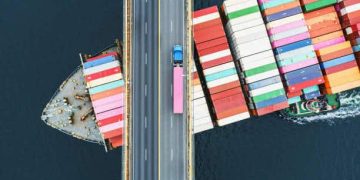Bud Darr, Executive Vice President of Maritime Policy & Government Affairs at MSC Group, highlighted the complexities currently facing the shipping industry during Marine Money Week in New York. He described the disruptions experienced in recent years as “extraordinary,” citing factors such as the Red Sea crisis, Panama Canal drought, labor disputes, and rapid regulatory changes related to decarbonisation.
The global shipping industry has faced numerous challenges following the COVID-19 pandemic, including attacks on merchant shipping in the Red Sea, ongoing conflict between Ukraine and Russia, labor unrest at U.S. East Coast and Gulf Coast ports, and historically low water levels at the Panama Canal affecting traffic. Although some issues have alleviated, others persist amid an evolving regulatory landscape aimed at achieving net zero emissions by 2050.
MSC Group, one of the world’s largest privately held shipping and logistics conglomerates, operates 800 vessels across 300 trade routes. Darr stressed the need for building resilience in global supply chains and questioned whether the industry might be operating “too lean” to effectively manage unforeseen events.
Darr pointed to the unexpected disruptions in the Red Sea caused by non-state actors and noted the significant efforts MSC has made to adapt, including adjusting liner networks, rerouting vessels, and investing in additional shipping capacity. He emphasized the critical role of seafarers in maintaining global commerce, referring to them as “unsung heroes.”
Regarding decarbonisation, Darr addressed the challenges posed by new regulatory requirements, such as IMO 2020, which mandated a switch to very low sulphur fuel for 60,000 ships. He described this as a minor step compared to the broader challenge of decarbonising shipping. He highlighted the issue of fuel supply, noting that ships may need to use significantly more green alternative fuels to achieve the same energy levels as traditional marine fuels.
Darr advocated for the development of a global fuel standard with minimum greenhouse gas intensity and the inclusion of carbon pricing to support the transition. He expressed confidence that the industry will decarbonise, though the pace and options available will largely depend on regulatory decisions made in the present.
Stay current with supply chain report news at The Supply Chain Report. For international trade resources, visit ADAMftd.com.
#SupplyChainRisk #Decarbonisation #ShippingIndustry #GreenShipping #SupplyChainNews















